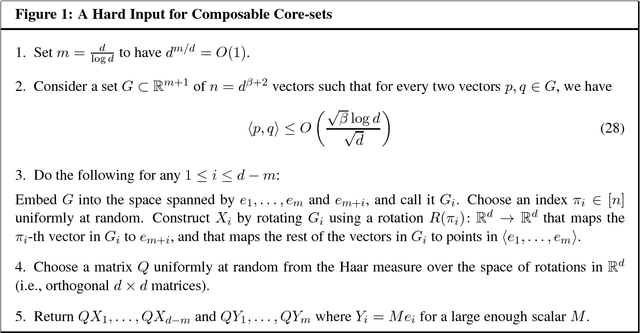Composable Core-sets for Determinant Maximization Problems via Spectral Spanners
Paper and Code
Jul 31, 2018
We study a spectral generalization of classical combinatorial graph spanners to the spectral setting. Given a set of vectors $V\subseteq \Re^d$, we say a set $U\subseteq V$ is an $\alpha$-spectral spanner if for all $v\in V$ there is a probability distribution $\mu_v$ supported on $U$ such that $$vv^\intercal \preceq \alpha\cdot\mathbb{E}_{u\sim\mu_v} uu^\intercal.$$ We show that any set $V$ has an $\tilde{O}(d)$-spectral spanner of size $\tilde{O}(d)$ and this bound is almost optimal in the worst case. We use spectral spanners to study composable core-sets for spectral problems. We show that for many objective functions one can use a spectral spanner, independent of the underlying functions, as a core-set and obtain almost optimal composable core-sets. For example, for the determinant maximization problem we obtain an $\tilde{O}(k)^k$-composable core-set and we show that this is almost optimal in the worst case. Our algorithm is a spectral analogue of the classical greedy algorithm for finding (combinatorial) spanners in graphs. We expect that our spanners find many other applications in distributed or parallel models of computation. Our proof is spectral. As a side result of our techniques, we show that the rank of diagonally dominant lower-triangular matrices are robust under `small perturbations' which could be of independent interests.
 Add to Chrome
Add to Chrome Add to Firefox
Add to Firefox Add to Edge
Add to Edge